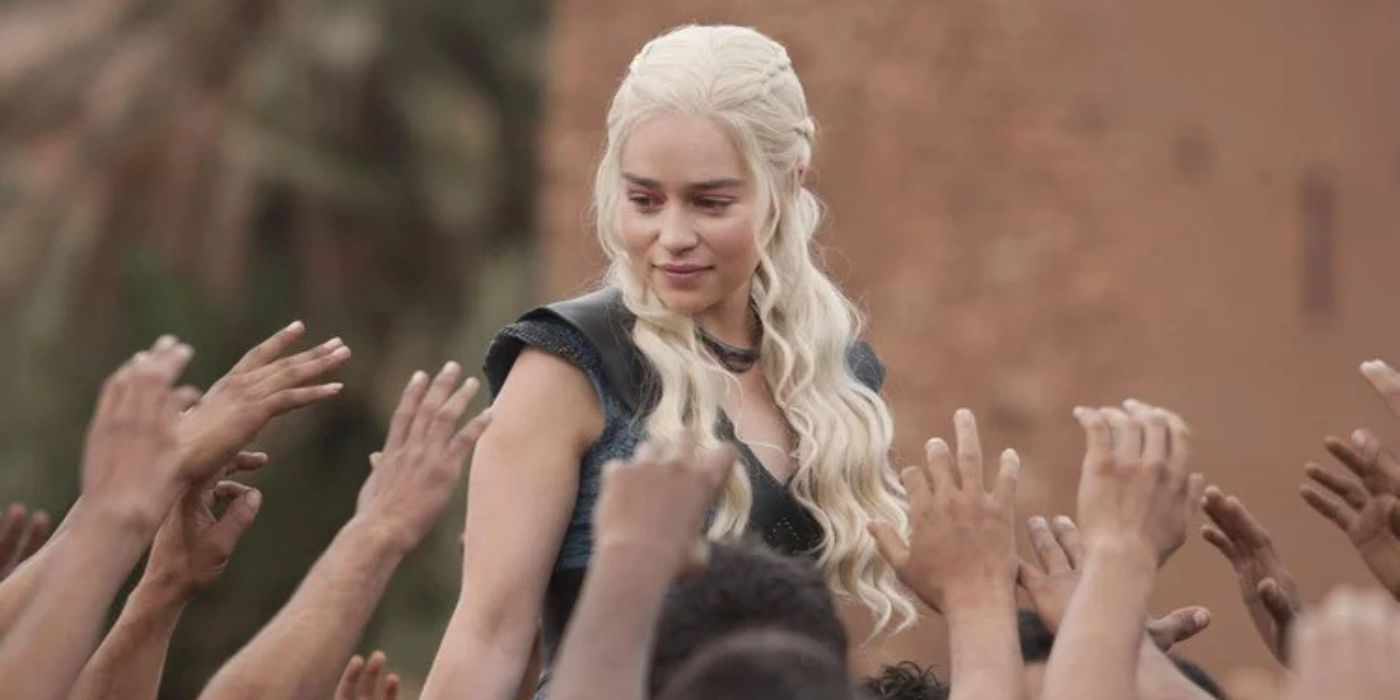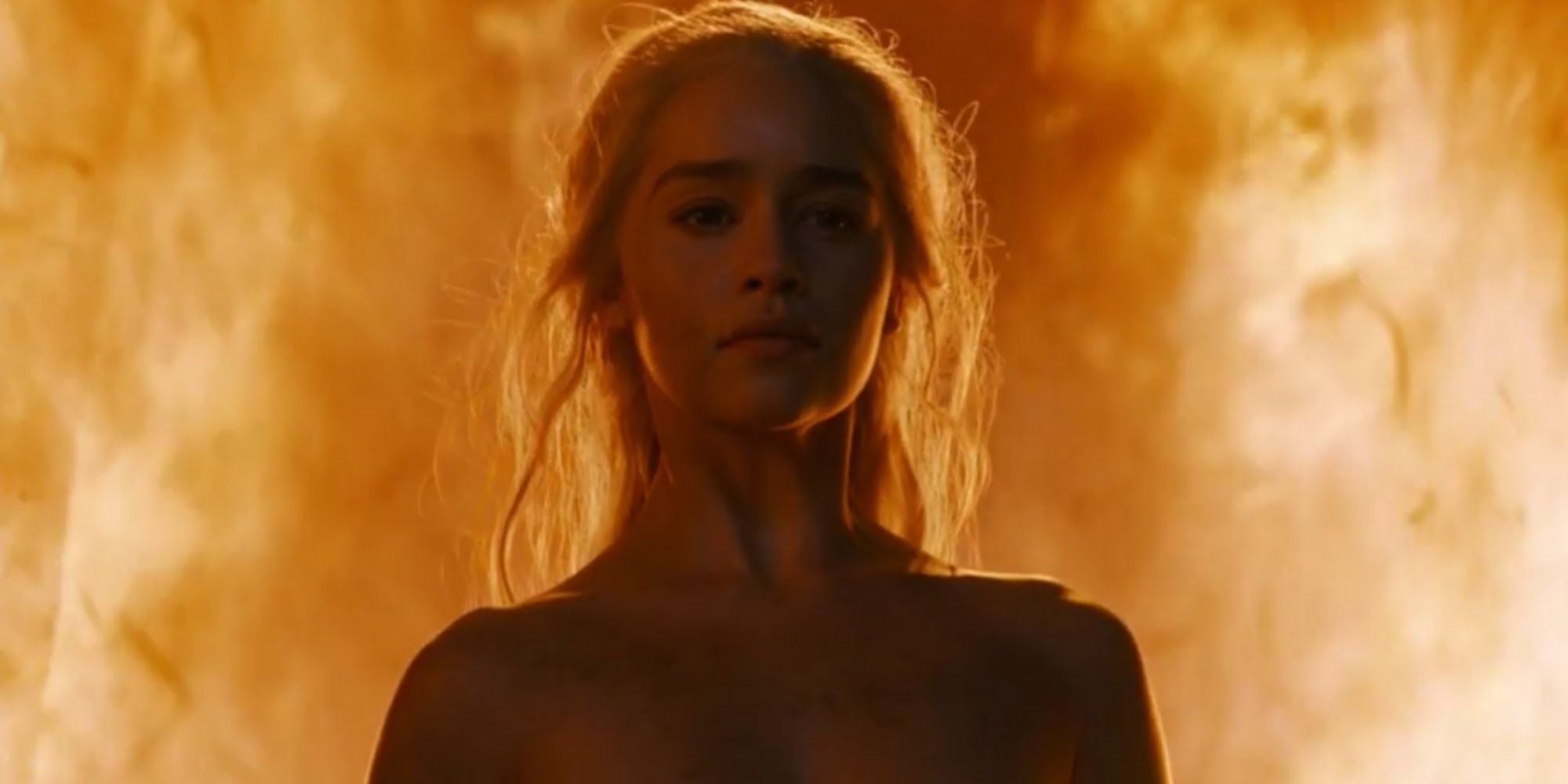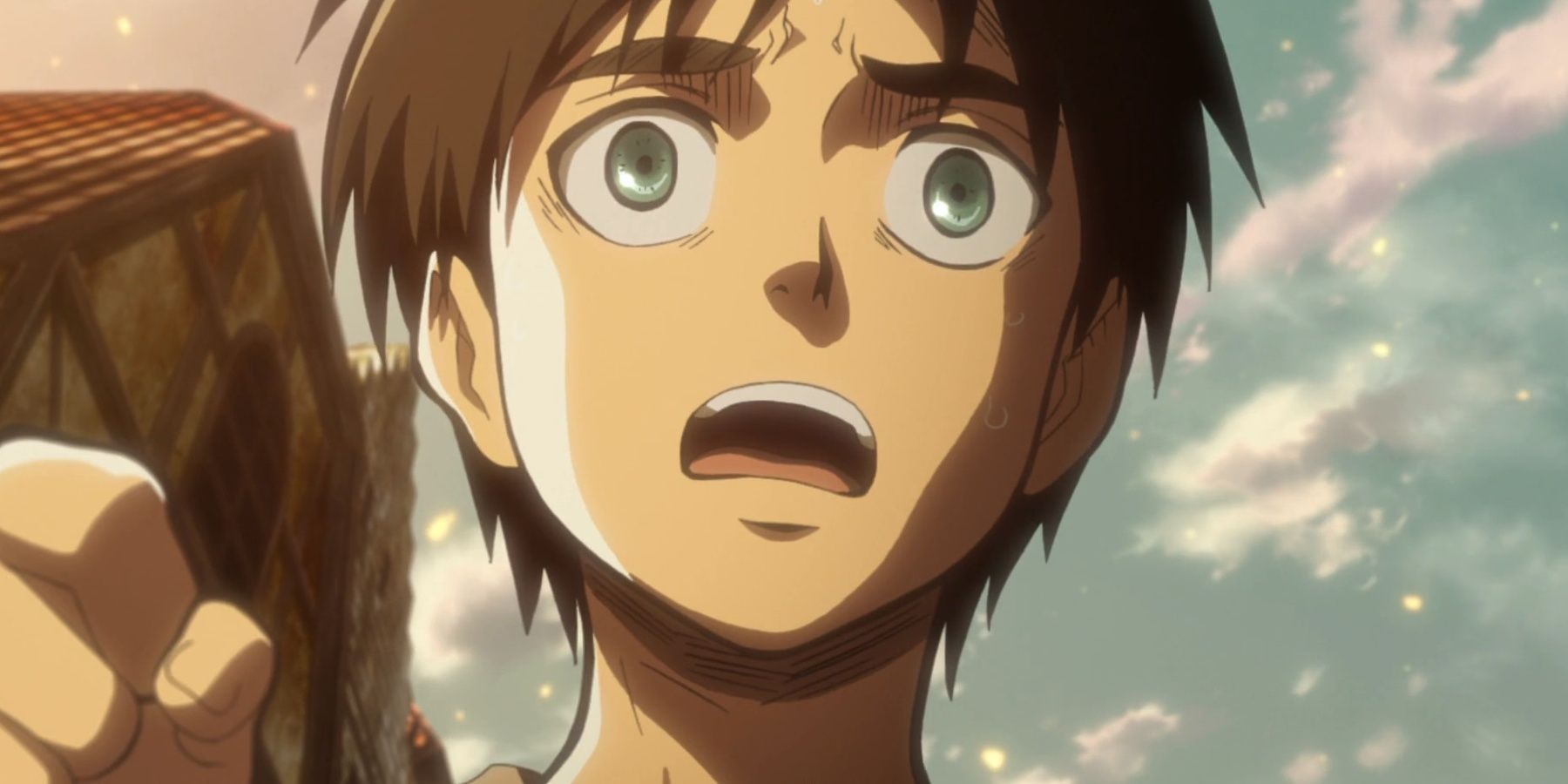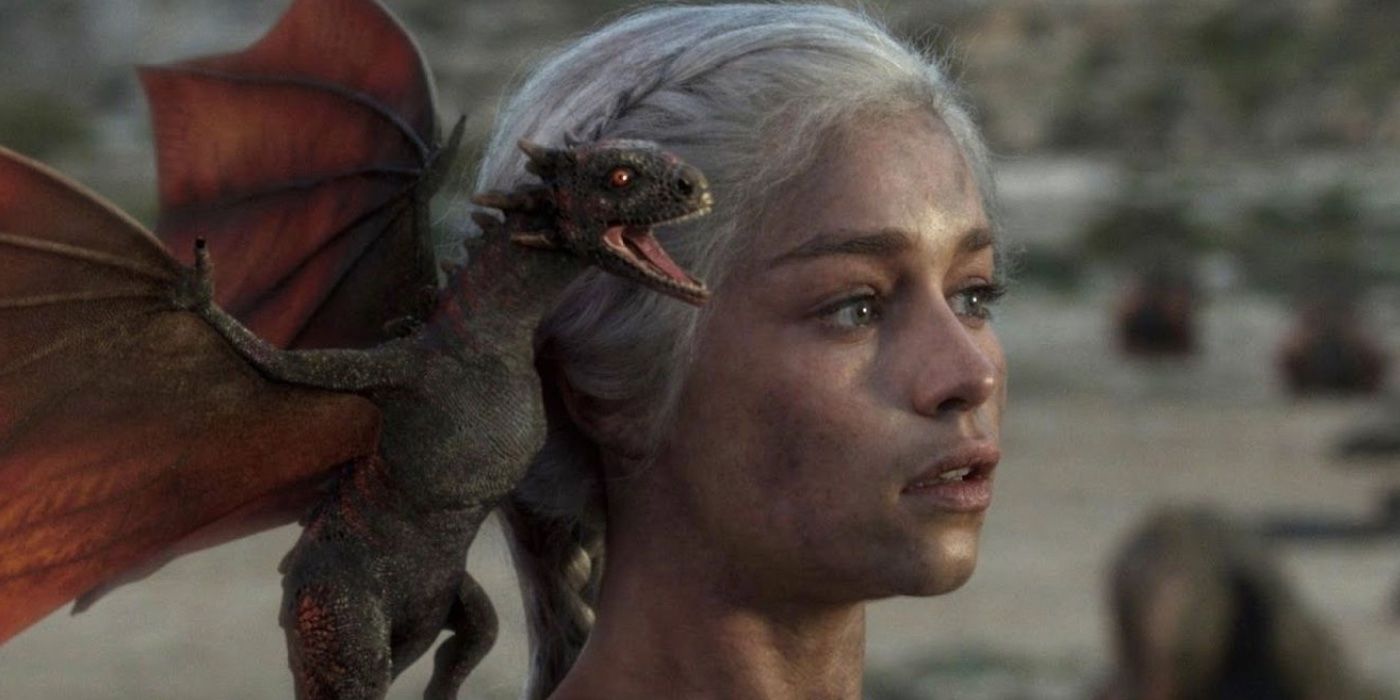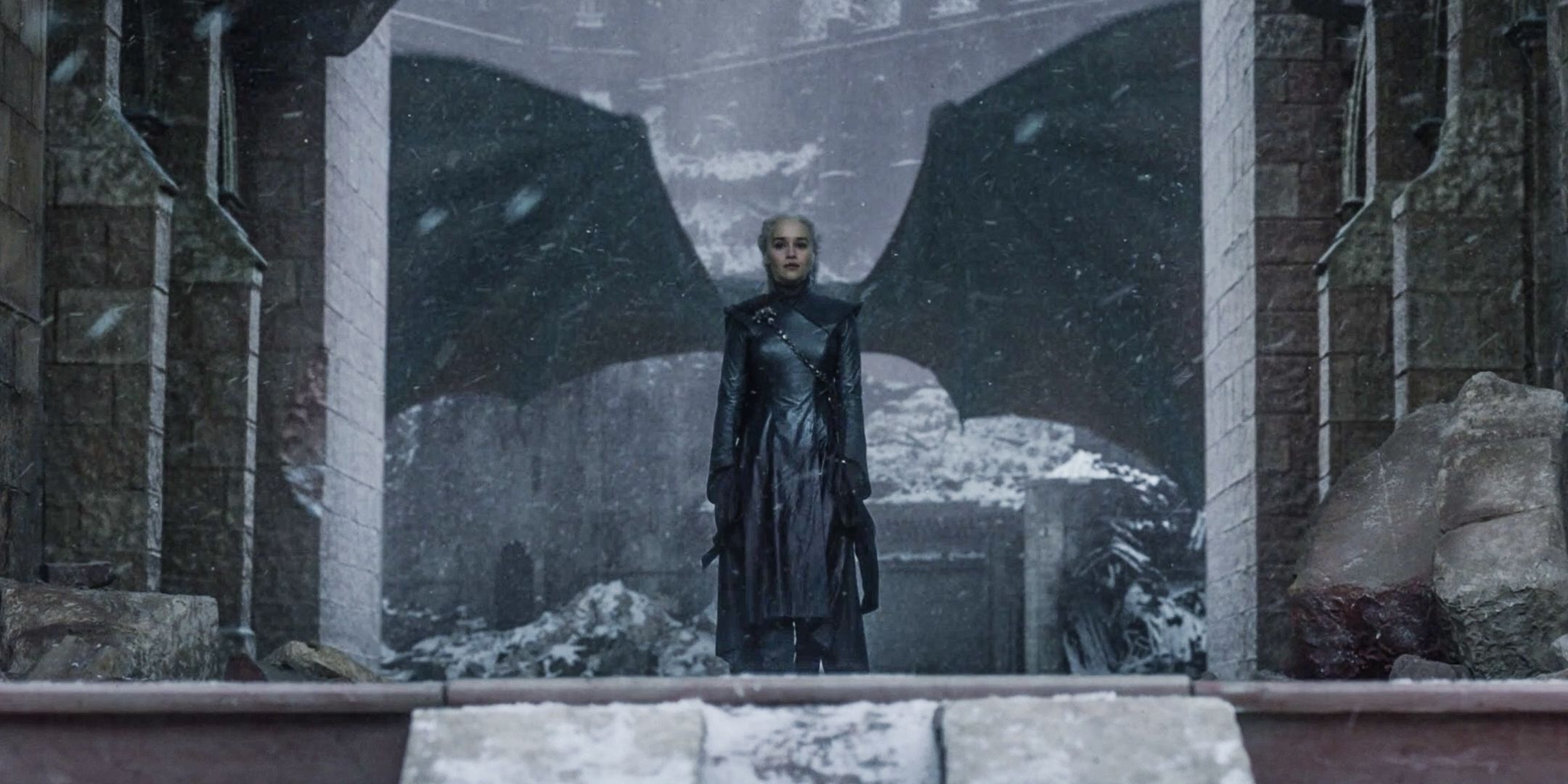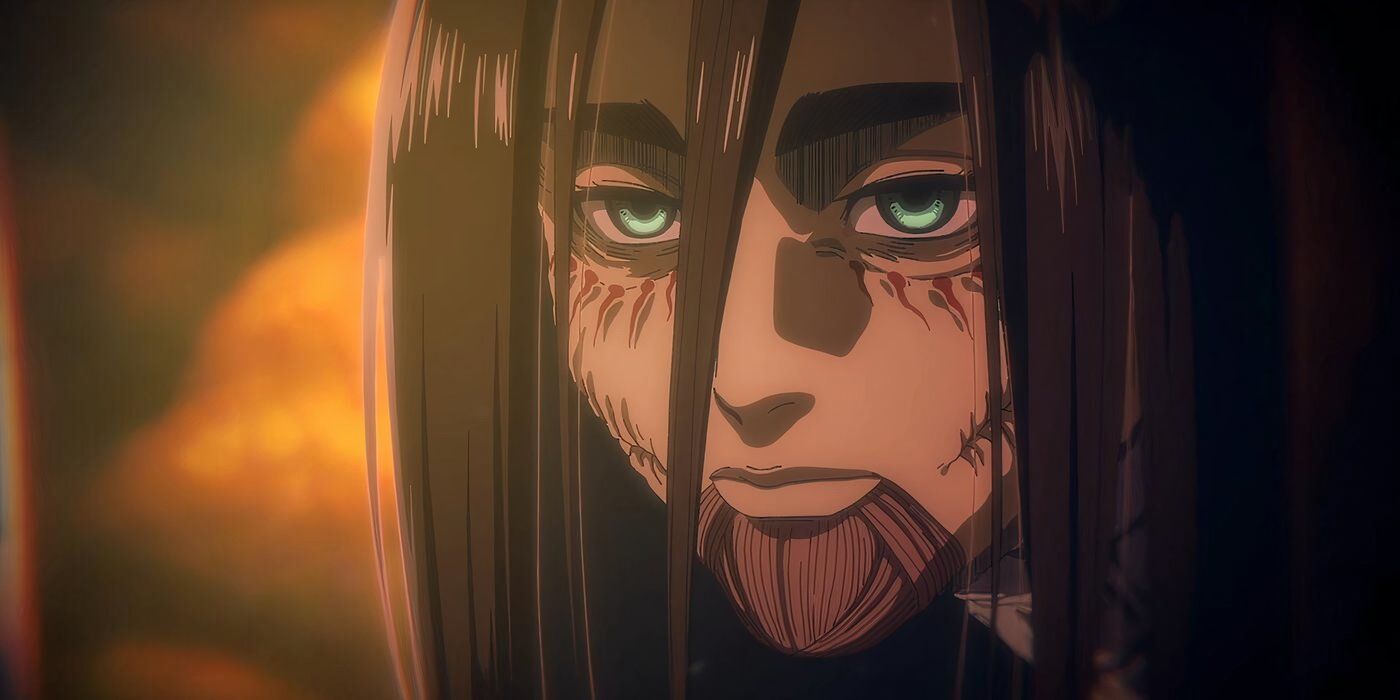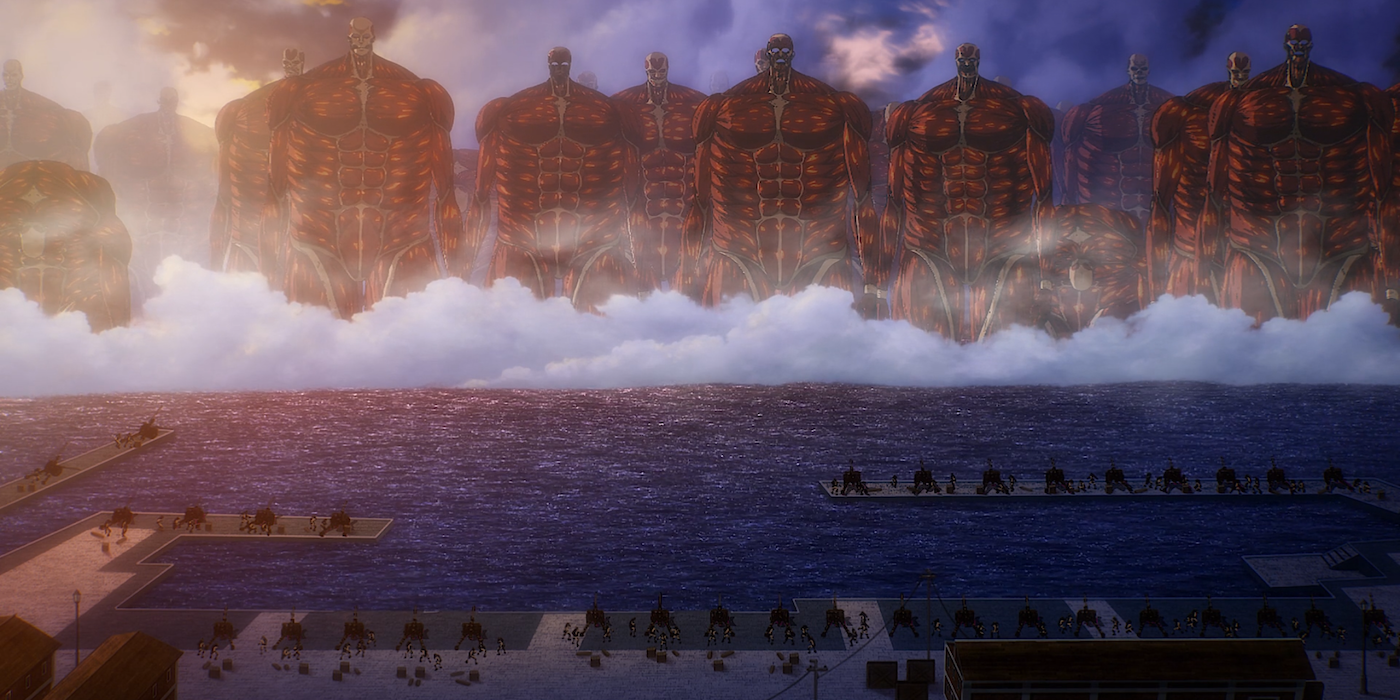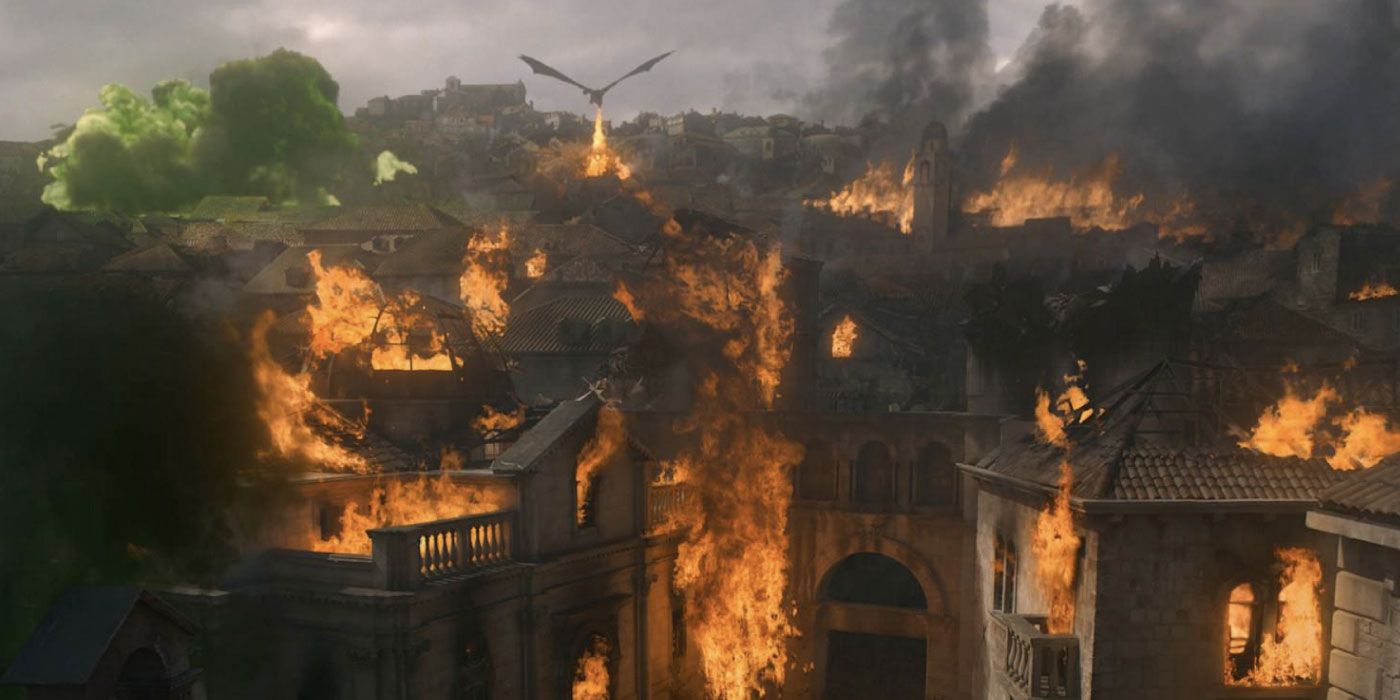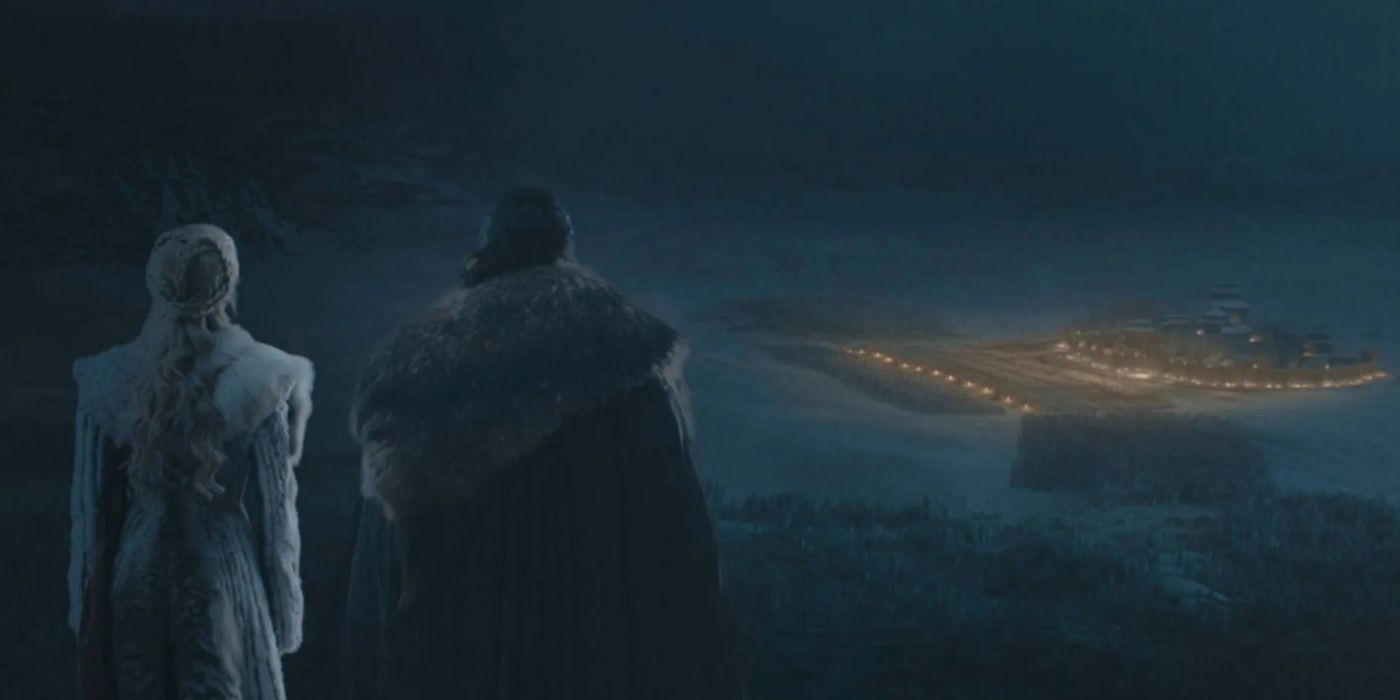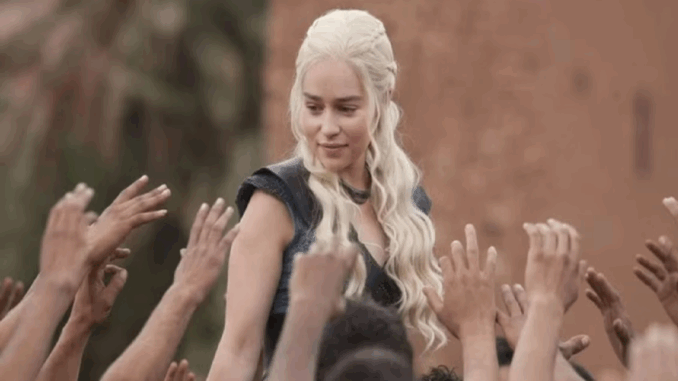
Daenerys and Eren strove to make their respective worlds a better place to live, even if that involved ousting those in power by any means necessary. At the same time, fans were deeply upset when these two heroes went down the worst path imaginable. Eren Yeager and Daenerys Targaryen became the oppressors they had been fighting against, and this was seen as character assassination by the fandoms. However, it was always clear that Eren and Daenerys were going to end the way they did.
Daenerys Targaryen & Eren Yeager Were Hailed as Saviors
Eren & Daenerys Fought for Universal Freedom
The worlds of George R.R. Martin and Hajime Isayama are radically different fantasy realms, each with its own forms of supernatural power. What unifies them, however, is the sociopolitical commentary underlying the magical elements in both stories. Daenerys and Eren have rather unfortunate backstories, one of the many features which connects these two characters. Daenerys’ suffering under her brother Viserys, not to mention losing countless friends and allies, would shape her future as much as Eren losing his home and mother to the Titan invasion of Shiganshina district.
Daenerys & Eren’s Character Arcs Began With Universal Empathy
Few fictional characters have undergone as much anguish during their childhoods as Eren and Daenerys. However, being forged in the crucible of trauma and the absence of freedom is what allowed them to understand pain, both emotional and physical, on a very personal level. Empathy might have genetic roots, but there’s no better way to understand another person’s feelings than going through those feelings. At their cores, Daenerys and Eren understood that everyone deserved to be free. And since they had the power to influence that outcome, they ended up using them for the good of their people.
Daenerys chose to liberate the slaves of Essos for two reasons: she believed their lot was the worst she had ever seen, and because Slaver’s Bay was geographically nearby. The latter reason never mitigated her commitment to the cause of emancipation, as she had entire legions of former slaves referring to her as “mother.” Like Daenerys, Eren was also powered by rage, although his anger erupted far more frequently than hers. Eren vowed to destroy the endless apocalypse of the Titans and usher Paradis into a new era. It was ultimately no surprise that Eren and Daenerys were seen as saviors, by their people as well as by the fandoms.
Eren & Daenerys Eventually Descended Into Tyranny
Heroes Who Live Long Enough Sometimes Become Villains
Unfortunately or otherwise, Eren and Daenerys were victims of their destiny. Daenerys believed she was meant to unite the peoples of Westeros, perhaps the world, and she initially fought to ensure the implantation of her ideals across Essos. She quickly became known as the Breaker of Chains, along with numerous fancy titles that just kept getting longer and more impressive. With the first dragons in hundreds of years, Daenerys fell deeper into the idea that she was a noble conquistador, invading other lands in order to bring peace to them. Daenerys only left Essos behind to fulfill her ambition of conquering Westeros.
Daenerys’ transformation into the Mad Queen led to a widespread massacre, with Drogon killing and maiming tens of thousands of her own people. Following the genocide at King’s Landing, even her closest remaining allies turned against her: Tyrion Lannister went first, but later convinced Jon Snow to do the same. Daenerys was killed by the only man who loved her: Jon’s duty was the death of his love. In an eerily similar fashion, Eren’s Rumbling also led to a genocide, albeit at a much grander scale, ending millions of lives. It finally fell to his closest friends, Mikasa and Armin, to mount a resistance that would end in Eren’s death at Mikasa’s hand — the woman who loved him more than anyone or anything.
The GoT and Attack on Titan Fandoms Criticized These “Character Assassinations”
Few Fans Expected Eren & Daenerys to Become Villains
All things considered, however, the fandoms were mostly furious that these two character arcs were written in such a way that their transformations were unpredictable and inconsistent with previously established traits, like empathy and generosity. As such, Daenerys and Eren’s characters were claimed to have been assassinated, which strongly implied that the respective creators opted for shock value rather than a satisfactory closure to their arcs. It just didn’t make any sense why two people with such strong senses of solidarity would end up betraying humanity. The transition from hero to villain was apparently too fast-paced to even recognize signs of Eren and Daenerys’ metamorphosis.
Eren & Daenerys’ Transformations Were Foreshadowed
GoT and Attack on Titan Gave Fans Countless Clues & Justifications
In Season 4, Bran’s vision sees Drogon flying over King’s Landing, a scene that was proven true in “The Bells.” Even Daenerys’ dream in the House of the Undying in Season 2 was the exact same scene as the throne room after her destruction of the Red Keep in Season 8. Daenerys became more and more paranoid and fearful in the final season, refusing to trust anyone completely. She began to see enemies where there were none, and the revelation that Jon Snow had a better claim on the Iron Throne was the worst blow. Daenerys actively chose fear as her mode of conquest, as she realized that few in Westeros loved her. None of these events happened simultaneously — they might be mixed up here and there, but so many clues were already available.
Eren’s legendary rage wasn’t meant to show his justified anger, but rather his innate nature. Even before his father Grisha gave him the Attack and Founding Titans, Eren was shown murdering the men who had kidnapped Mikasa. The idea that a 9-year-old would be capable of such atrocity was also a sign of his imminent future. It could be argued that Eren’s inability to stop the Rumbling was also a source of anger, but this complexity of emotions helped flesh him out a bit more.
Eren & Daenerys Did What They Promised to Do
Eren & Daenerys Actually Made Many People’s Lives Better
Daenerys failed in her personal mission to conquer Westeros and restore the Targaryen legacy. However, that was not the only oath she took. Since the beginning, Daenerys swore to protect anyone who was oppressed, and there was no scarier oppressor than the Night King. Without Daenerys, Westeros would have been rapidly engulfed by the Night King and his armies. Daenerys was right about being part of a prophesy — what she failed to understand was that her role revolved around Jon Snow and the Night King. In fact, Daenerys and Jon are presumably referenced in A Song of Ice and Fire, the title given to the book series. She was never meant to rule, but saving an entire continent still counts as satisfying the requirements of her original character arc.
Eren only wanted to do one thing: destroy all of Titankind and restore peace to the Eldian people. Neither he nor his fandom had any idea about the Attack Titan’s actual purpose for the longest time, but realizing this ability and its outcome is what made him such a gloomy beast. Eren destroyed 80% of the world with the Rumbling because, with the Attack Titan’s timeline-bending powers, he learned that there was no other way to keep his loved ones safe. At the same time, he also caused the destruction of Titankind by offering himself as a combatant, which allowed Mikasa to take his life to destroy the source of Titans: the Shining Centipede. Daenerys and Eren ultimately kept their most important promises, which made them better characters.
